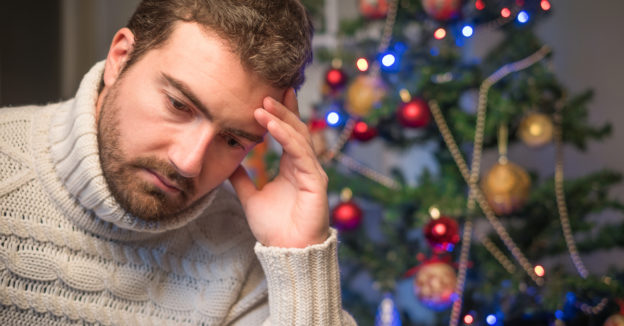The holidays can be incredibly stressful. Thanks to social messaging (movies, TV, commercials, etc.), we feel like we need to be perfect—more so than usual even—during this supposedly joyful season. We think we need to cook the perfect meals, put out the best decorations, buy the most awesome gifts, and be the life of the party at all times (without going overboard and making fools of ourselves). And when one tiny little thing doesn’t go as planned, we feel like a failure. Our shame kicks in and we think we’re unlovable, unwanted, burdensome, and a drain on everyone else’s enjoyment of the season.
Here are five tips that can help us not only survive but thrive during the holiday season.
- Create a Gratitude List. Gratitude and happiness are linked. After researching happiness for nearly two decades, psychologist Brené Brown identified one primary difference between happy people and unhappy people: Happy people are grateful for what they have. It doesn’t seem to matter to them what they have (or don’t have); they’re grateful either way. Gratitude begets happiness. Period. So, if we’re feeling down, a great way to get out of that is to write out a 10-item gratitude list. This helps us focus on the current moment and the blessings in our lives, rather than on what’s not going perfectly or what might go wrong in the future.
- Connect. One of the best ways to overcome stress, depression, anxiety, and feeling triggered during the holidays is to engage in seasonal activities with other people, especially family and friends. Instead of buying gifts on our own, we can take our spouse or our best friend. Instead of baking and decorating 12 dozen cookies on our own, we can ask our kids to help. Sure, these activities might take more time with the “help” of family and friends (and the cookies might not be as well-decorated as we’d manage on our own), but at the end of the day, the holidays are not about speed and perfection. They’re about love and connection.
- Do a Daily Check-In. The acronym HALT stands for Hungry, Angry/Anxious, Lonely, and Tired. If we’re experiencing one or more of these conditions, we’re gong to struggle. So we can check in with ourselves and then eat a sandwich, talk to a friend, take a nap, or engage in some other healthy activity that reduces our feelings of stress, anxiety, and the like.
- Relax. During the holidays most of us seem to think our lives should be a non-stop string of parties, dinners, events, and shopping sprees. But we also need to go to work, keep the house, care for the kids (who likely have an increased number of activities to navigate), and just plain do life. It’s easy to get overwhelmed by this and to forget about self-care in the process. Most of us find it helpful to set aside some time (at least an hour) every day for rest and relaxation. Meditation, yoga, reading, watching fun TV (not the news!), going to the movies, napping, and taking a leisurely walk are highly recommended. We also need to get enough sleep, to eat reasonably healthy meals, and to get our usual amount of exercise. Caring for ourselves in this way keeps us on an even keel despite holiday stressors.
- Let People Be People. We can’t control other people. Sure, we want our friends and family to be continuously joyful and well-behaved, and we do our best to facilitate that. But they’re going to think and feel and act however they choose to think and feel and act, and there’s not much we can do about it. If grandma lets our youngest child eat ten of her famous espresso-chocolate cookies and now we’ve got a Tasmanian devil running around the house, we can get mad, or we can take pics of our crazy child and post them on Facebook. If our neighbor decorates his house like Clark Griswold in Christmas Vacation, we can worry that our decorations are inadequate or we can be glad we’re not paying his electric bill. Other people are going to do what they do, and we need to let them. During the holidays, more so than ever.
At the end of the day, maintaining sanity during the holidays is incredibly similar to maintaining sanity throughout the year, but on steroids. In short, we need to recognize that the emotional and psychological triggers we struggle with year-round are likely to be more frequent and more intense during the holidays, especially with spiked eggnog and over-the-top office parties and badly-behaved fellow shoppers and all of the other holiday not-so-niceties exacerbating our usual daily challenges. As such, we need to stand up for ourselves during this difficult time, stepping up our self-care in ways that mirror the emotional and physical stress the season brings us.
